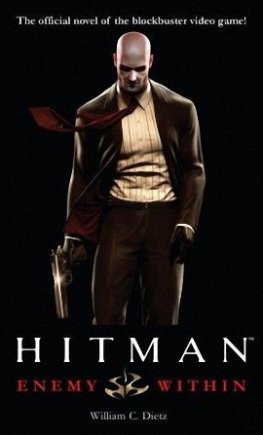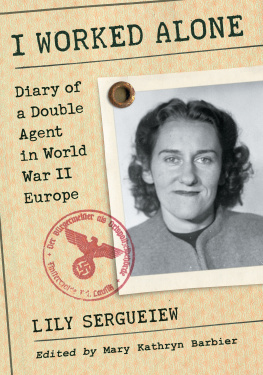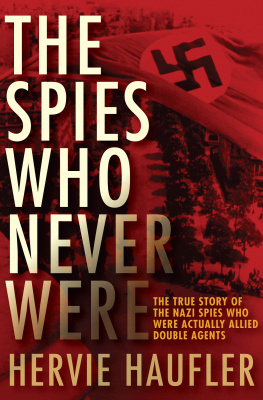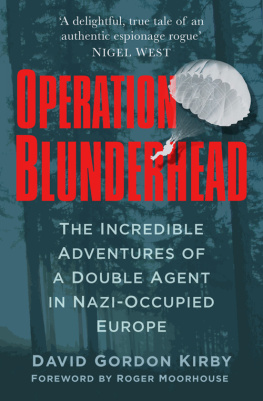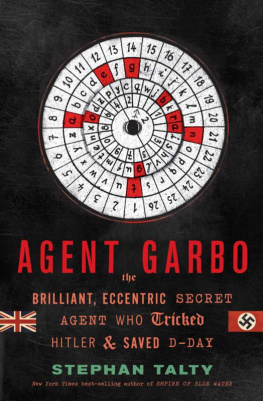Thank you for downloading this Scribner eBook.
Join our mailing list and get updates on new releases, deals, bonus content and other great books from Scribner and Simon & Schuster.
C LICK H ERE T O S IGN U P
or visit us online to sign up at
eBookNews.SimonandSchuster.com
We hope you enjoyed reading this Scribner eBook.
Join our mailing list and get updates on new releases, deals, bonus content and other great books from Scribner and Simon & Schuster.
C LICK H ERE T O S IGN U P
or visit us online to sign up at
eBookNews.SimonandSchuster.com
ALSO BY PETER DUFFY
The Killing of Major Denis Mahon:
A Mystery of Old Ireland
The Bielski Brothers:
The True Story of Three Men Who Defied the Nazis, Built a Village in the Forest, and Saved 1,200 Jews

SCRIBNER
A Division of Simon & Schuster, Inc.
1230 Avenue of the Americas
New York, NY 10020
www.SimonandSchuster.com
Copyright 2014 by Peter Duffy
All rights reserved, including the right to reproduce this book or portions thereof in any form whatsoever. For information, address Scribner Subsidiary Rights Department, 1230 Avenue of the Americas, New York, NY 10020.
First Scribner hardcover edition July 2014
SCRIBNER and design are registered trademarks of The Gale Group, Inc., used under license by Simon & Schuster, Inc., the publisher of this work.
The Simon & Schuster Speakers Bureau can bring authors to your live event. For more information or to book an event, contact the Simon & Schuster Speakers Bureau at 1-866-248-3049 or visit our website at www.simonspeakers.com.
Jacket design by Laurie Carkeet
Jacket photograph courtesy of the Library of Congress
Library of Congress Control Number: 2013050801
ISBN 978-1-4516-6795-0
ISBN 978-1-4516-6797-4 (ebook)
To Laura
CONTENTS
PROLOGUE
I have everything I ever wished for, and Germany doesnt appeal to me a bit.
Bill Sebold, in a letter to FBI special agent Jim Ellsworth, August 9, 1946
I n the early afternoon of December 11, 1941, Berlin time, Adolf Hitler mounted the rostrum in the Reichstag and delivered an eighty-eight-minute address that cataloged the sins of President Franklin Roosevelt (an unsophisticated warmonger who was mentally unsound) and praised the Japanese attack on Pearl Harbor of four days earlier as an act of deliverance that all of us, the German people and, I believe, all other decent people around the world as well, regard with deep appreciation. The Fhrer took note of the insulting attacks and rude statements by this so-called president against me personally, making particular mention of FDRs barb that he was a gangster. This term did not originate in Europe, where such characters are uncommon, but in America, he said to the delight of the deputies, assorted Nazi dignitaries, and honored Japanese guests. But the loudest cheers came when Hitler made clear that the purpose of his speech was to declare war on the United States, his voice suddenly drowned out by raucous applause that escalated into a standing ovation.
Late in the evening on the following day, Brooklyn time, a jury of nine men and three women filed into a packed courtroom in the old federal building on Washington Street. At a few minutes before midnight, the jurys foreman, Edward A. Logan, stood before the hushed assemblage and read guilty verdicts against the fourteen out of thirty-three Nazi spies who hadnt already confessed to their membership in what was known as the Duquesne Spy Ring, still to this day the largest espionage case in American history. The proceeding was unmarred by any disruption. The defendants took the verdicts stoically, for the most part, wrote the Times . Judge Mortimer W. Byers then thanked Logan and his fellow jurors for their service. It will readily appear, he said, that you have rendered a very substantial contribution to the welfare of the country which you and I hold very dear. And so they had.
This, the first US victory of World War II, wouldve been impossible without one man whose contribution to the war effort has never been recognized, William G. Sebold. In a culture that has come to celebrate even the most tangential representation of the Greatest Generation, his identity has remained mysterious, his picture never published. By 1951, Sebold had lapsed into an obscurity which has been protected ever since by the FBI, according to a magazine that used a pseudonym to describe him. All we know is that somewhere in the U.S. today is a tall, gaunt, middle-aged man to whom each native-born American can well doff his hat in love and respect, neglecting to mention that the non-native-born citizen owed him a debt of gratitude, too. When Sebold died in February 1970, no obituary or death notice appeared in the newspapers. A pivotal figure in Americas confrontation with Nazism had been forgotten.
In the years before the formal commencement of hostilities, Hitlers agents were active in New York. They were a collection of ideologues, opportunists, dupes, adventurers, thugs, sophisticates, poseurs, patriots, seductresses, lackeys, and sympathizers. Most (but not all) were German immigrants who would come to be associated in the public mind (not always unfairly) with a single neighborhood of upper Manhattan, the home base of a nationwide movement of uniform-wearing Nazis whose rallies and marches were a constant source of media fascination. Dwelling within this community of the like-minded were a handful of individuals with the genuine talent to provide meaningful assistance to the German war machine. Few today realize that a Bavarian-born immigrant living in Queens, Hermann W. Lang, succeeded in stealing the plans for Americas greatest prewar secret, a precious instrument of mythic reputation designed to turn modern airplanes into bomb-dropping systems of unprecedented accuracy, a brazen act of thievery that represents the most significant intelligence coup of the Third Reich.
The spies of the thirties were initially able to conduct their work without worry of detection because the US government, focused on remedying economic misery in a period of rigid isolationism, hadnt assigned any agency to root them out. The story among the Soviet agents was that you could walk down Broadway wearing a sign identifying yourself as a spy and still not get caught. It took a botched investigation into a portion of the Nazi network in New York by an unprepared FBI to convince President Roosevelt that J. Edgar Hoover should be empowered to become the nations first modern spymaster. Already a national celebrity for directing his G-men in a tommy-gun-assisted crusade against the John Dillingers and Pretty Boy Floyds of the early Depression, Hoover was given the authority to launch covert investigations against those who reflect in their pernicious activities the desires of enemy modes of thought and action, as he said in a speech on October 24, 1939, less than two months after Nazi Germanys invasion of Poland marked the beginning of the war in Europe.
But Hoovers FBI couldnt rectify the failure to capture the most destructive Nazi agents in New Yorkand prove that it had the ability to construct a counterespionage operation of sufficient expertisewithout Bill Sebold, a naturalized American of German birth who was both guileless and headstrong. In early 1939, he made the mistake of leaving Manhattan and returning to his mothers home in the Reich just as Hitler was stepping up his march to war. Through a strange set of circumstances, as a US diplomat put it, Sebold was coerced into the German espionage service and sent to the United States, accepting the assignment knowing that he would never go through with it, but knowing that he had to do something in order to get out of Germany alive, said the FBI. Upon his arrival in New York, he agreed to become the first double agent in Bureau history, the central figure in a pioneering undercover operation that steadily grew in size and sophistication, its expansion enabled by the Germans willingness to allow him to reach into an ever-widening circle of Hitlers underground.
Next page

